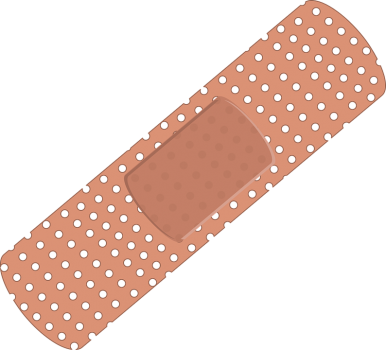A minor or major injury can often be Wound Care depending on its severity. You can use bandages from your first aid kit to treat minor injuries. But, you will need professional treatment for severe injuries. Doctors are also recommended for the regular dressing of wounds using special medical sprays or lotions. Patients trust their doctors and nurses with their healing. Medical professionals must be as knowledgeable and helpful as possible to their patients.
To be ready for the treatment of various injuries, doctors must keep basic and rare supplies easily accessible.
Here are some essential supplies for wound care that every physician should keep on hand to treat their patients’ injuries.
1. Medical Tape
The medical tape stabilizes and secures the bandaging that is placed over a wound. Most medical tapes can be self-adhesive or hypoallergenic. There are many types of medical tapes available, and they can be used on a variety of wounds and injuries.
- Pre-wrap
- Cloth tape
- Stretch tape
- Surgical tape
- Tape for athletes
- Adhesive foam
- Waterproof tape
You should keep a variety of medical tapes, regardless of their purpose, in your kit of wound care supplies.
2. Gauze Sponges
Gauze sponges are versatile supplies that can be used for wound care. These sponges are great for absorbing body fluid before dressing wounds. This creates a sterile barrier that protects against bacteria and dirt. There are several types of wound gauze depending on what type of wound you have and where it is located. These are the types of gauze sponges one can use.
- ABD pads for larger wounds
- Gauze rolls are used for basic wound care
- Use standard gauze sponges to clean basic injuries
- Self-adhering foam to stabilize the skin around a wound
- Non-adhering dressing to treat burns or surgical incisions
3. Alcohol Pads
Individually packaged alcohol pads make it easy to clean and prepare the skin for an injection. Some wounds require incisions. Incision preparation is made easier by alcohol pads. It helps prevent bacteria from entering the skin after it has been pierced for injections or incisions.
For cleaning open wounds, alcohol pads are useful. These are basic wound care products that you shouldn’t miss.
4. Bandages and Dressings
To protect wounds and promote healing, proper bandaging will be required for most cases. The stock of various types of bandages can be helpful for medical professionals in treating wounds quickly, regardless of size or severity. These are the kinds of wound care bandages one should keep in stock:
- Foam dressings
- Alginate dressings
- Hydrogel dressings
- Bandages with medicinal properties
- Hydrofiber dressings
- Dry gauze dressings
- Bandages with basic transparent adhesive
5. Medical Drapes
If a wound requires surgical closure, medical curtains can be used to protect the wound from infection. The drapes are impermeable and disposable. These drapes are ideal for protecting the surgical site and helping to prevent bacteria from getting into the wound. To properly prepare for severe wounds, doctors should have medical drapes included in their wound dressings.
6. Non-Woven Sponges
Non-woven sponges are made of tightly pressed cotton, rayon and polyester fibers. These sponges are more durable than woven sponges. They are ideal for protecting wounds and other injuries.
7. Medical gloves
Medical gloves are like facemasks. They protect doctors and patients. Medical gloves can be used to treat an injured patient. They prevent bacteria from getting into the wound and allow any infection or virus present in the blood or body fluids to be transmitted to the doctor. Professionals should have latex-free, latex-free gloves available for their safety as well as their patients.
How to Dress It Up
The above-mentioned essentials of medicine and the proper medical knowledge will allow doctors and their team to quickly treat any injuries. The essential part of any cleaning or healing process is common supplies such as medical rolls, cotton balls, and gauge balls.
You should also ensure that you regularly check the expiry dates for any supplements. Expired solutions can cause serious injury or worsen an already existing injury. Other equipments, such as plasters, blood pressure monitors, thermometers, and nebulizers are also required. This equipment is essential and must be kept near the professionals in the hospital or ambulance. Plasters can be useful for patients who have broken bones due to injury. The blood pressure monitors are also useful before giving high doses of medication to the patient or taking their heart rate.
Read More: How does Ayurveda diagnose and treat asthma?







